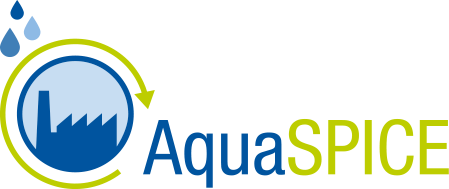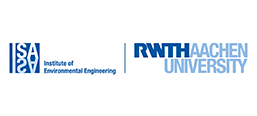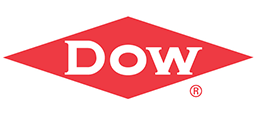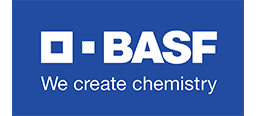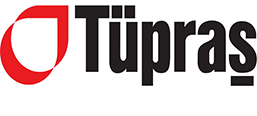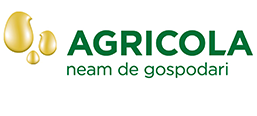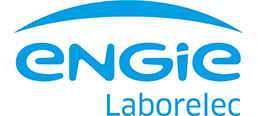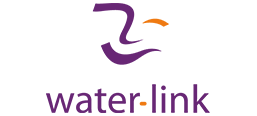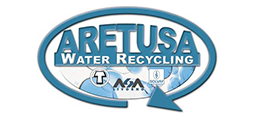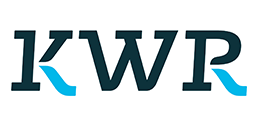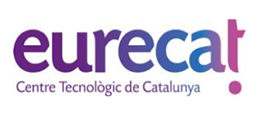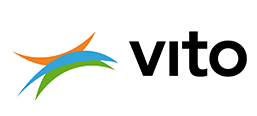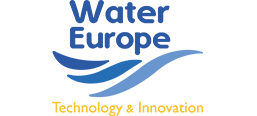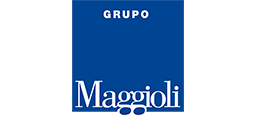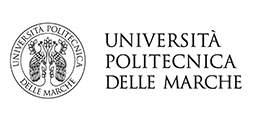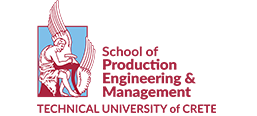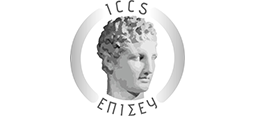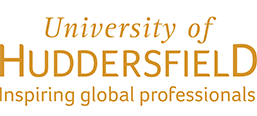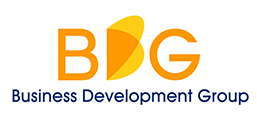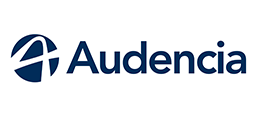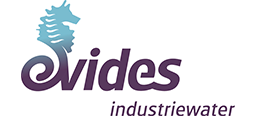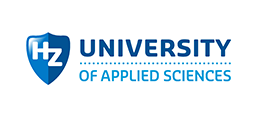Advancing Sustainability of Process Industries through Digital and Circular Water Use Innovations
Partners
RWTH AACHEN UNIVERSITY
The RWTH is the largest technical university in Germany with 45,256 students enrolled in 157 degree programs.
>7,000 students and >900 doctoral students graduate annually from RWTH. The number of foreign students (10,455 students from 125 countries) and RWTH ́s great international network (of formalized cooperations) with over 100 universities worldwide highlights the university’s strong international reputation. The university’s annual budget amounts to approx. 948 M€, with about 360 M€ covered by external funding. The RWTH is composed of 260 institutes in 9 faculties. It offers 36 graduate programs among which are nine so-called Research Training Groups funded by the German Research Foundation (DFG). The RWTH is one of 11 German Universities of Excellence and receives additional funding for three clusters of excellence from the Excellence Initiative of the German Federal Ministry of Education and Research (BMBF) and the DFG.
The Institute of Environmental Engineering (ISA) has decades of experience in water supply, urban drainage as well as water and wastewater treatment for municipal and industrial purposes. It has carried out hundreds of research projects. In the last decade, it has put the focus on advanced wastewater treatment as well as resource recovery and has coordinated major research clusters. The RWTH’s EU Project Management Team (EUPM), which is part of the central administration, provides consultancy services for researchers and assists the RWTH institutes in project administration and monitoring, finances, and reporting through the entire lifecycle of (mainly large-scale) projects.
Dow Olefinverbund GmbH
Dow (NYSE: DOW) combines global breadth, asset integration and scale, focused innovation and leading business positions to achieve profitable growth. The Company’s ambition is to become the most innovative, customer centric, inclusive and sustainable materials science company, with a purpose to deliver a sustainable future for the world through our materials science expertise and collaboration with our partners. Dow’s portfolio of plastics, industrial intermediates, coatings and silicons businesses delivers a broad range of differentiated science-based products and solutions for its customers in high-growth market segments, such as packaging, infrastructure, mobility and consumer care. Dow operates 106 manufacturing sites in 31 countries and employs approximately 35,700 people. Dow delivered sales of approximately $39 billion in 2020. References to Dow or the Company mean Dow Inc. and its subsidiaries. For more information, please visit www.dow.com or follow @DowNewsroom on Twitter.
Dow’s commitment in Germany began in 1960 with the establishment of its first sales office in Frankfurt am Main. Today, Dow Germany has 3,600 employees at 13 sites. To Dow Olefinverbund GmbH belong the locations Schkopau, Leuna, Teuschenthal, Bitterfeld and Böhlen with 1,600 employees.
BASF
BASF is one of the largest chemicals manufacturing companies. Water is an important medium in the manufacture of chemicals. That is why BASF has many years of thorough knowledge and experience in the field of water treatment. After all, constant efforts are made to use the correct water quality for the relevant application, ranging from cooling purposes, through desalination of water to the safe use of high-pressure steam. In this context, for example, in 2011 a large part of the drinking water consumption at the site was replaced by surface water. With regard to the treatment of used water, a whole range of physical, chemical and biological processes are used on the site to make water reuse possible on the one hand and to return water that can no longer be reused to the environment as pure as possible on the other hand. To keep abreast of the latest technologies, BASF frequently participates in (inter) national study days, experience exchanges and new technologies are regularly tested in the context of research projects.
SOLVAY
Solvay S.A. is a Multinational Chemical Company based in Belgium. It is leader in many markets ranging from specialty polymers, advanced materials, advanced formulations and essential chemicals. In Italy the company Solvay Chimica Italia S.p.A. is established and operating. Its site in Rosignano Solvay produces Sodium Carbonate, Sodium Bicarbonate, Calcium Chloride, Hydrogen Peroxide, Peracetic Acid and Hydrogen Peroxide Electronic Grade.
Solvay is acting in Italy since more than a century. The Peroxide Production Unit, which will be focused within the project, is part of Rosignano site and it operates the only Italian Hydrogen Peroxide and Peracetic Acid plants. Hydrogen peroxide is used for the pulp and paper bleaching, for the oxidative step in the production of bio polymers, in the healthcare industry, in the mining industry, in the disinfection of water and in the production of wafers for the electronic industry. Peracetic acid is used in the disinfection of effluents from municipal bio treatment.
TURKIYE PETROL RAFINERILERI ANONIM SIRKETI (TUPRAS
Tüpraş is Turkey’s largest industrial enterprise and the 7th largest refining company in Europe. Operating four refineries located in Turkey the company has a total of 30 Mt of crude oil processing capacity. Tüpraş holds a leading position in Turkish economy not only through the economical added value it generates, but also with pioneering sustainability practices it performs. The main areas of work for environment, climate and energy management are energy and water efficiency, reducing waste and other environmental impacts, monitoring and reducing greenhouse gas and flue emissions, increasing environmental awareness in employees and society, and protection and improvement of natural life. Tüpraş protects water resources with practices that reduce water consumption and reuse wastewater, as well as works to reduce the adverse impact on the biodiversity value of the natural receiving environment. Tüpraş prioritizes to obtain consumed water from recovered waters instead of using natural resources in order to ensure sustainability. Tüpraş carries out R&D projects in line with the objectives of waste and water management, contributing to the circular economy. In the scope of AquaSPICE project, Tüpraş will demonstrate an innovative wastewater treatment technology coupled with smart monitoring, control, and process optimization in İzmit Refinery. AquaSPICE project will valorize the wastewater to produce reclaimed water and move Tüpraş towards the near-zero discharge goal.
AGRICOLA INTERNATIONAL
Agricola is an integrated production line : feed factory, 3 incubation stations, 2 reproductions farm, 19 farms for raising broilers or for slow growing chickens, 2 slaughterhouses, 3 logistics platforms and 12 cross-docking and its own fleet of cars. The company’s turnover in 2020, in a difficult year, was 95 million euros, placing it on the 3rd place in the Romanian market of chicken meat.
Agricola is defined by the spirit of innovation, and the Agricola Brand is a strong and dynamic one, who generating new products every year. Joyful Chicken, Family Chicken or the first COQUELET in Romania, are some proofs of the innovation brand. The quality of the AGRICOLA chicken meat has also been validated by professional chefs from all over the world. “The most highly qualified jury in the world “, according to the Brussels International Taste & Quality Institute ( ITQI ) has awarded in 2014 , 2016 and 2018 two gold stars and the ” remarkable taste ” qualification to the Agricola Joyful Chicken, as well as the right to include the ITQI brand on the product label for 3 years.
Agricola seeks to limit the impact on the environment by investing in new technologies to reduce consumption and optimize resources. Environmental policy has three main objectives:
- saving energy and using renewable resources for sustainable business development;
- limiting waste production by reducing it, managing it responsibly and recycling it;
- raising employee awareness to make a significant contribution to environmental protection.
ENGIE LABORELEC
ENGIE Laborelec is a leading research and competence centre in electrical power technology. This cooperative organization was established in 1962 in order to support Belgian electricity companies with research, development, and specialized services. Laborelec performs contract research and technical expertise services in electrical power and new energy technology. It improves the business of its shareholders and its external customers on the international market. Through its contract research, Laborelec improves the operational excellence of existing electrical power assets, it prepares its customers for their future challenges, it develops new solutions for energy end-users needs, and it anticipates and explores the potential and risk of emerging energy technologies. Through its technical expertise and consulting services, Laborelec creates value for its customers from cost savings, failure prevention, risk reduction, efficiency improvement, availability improvement, safety improvement and environmental footprint reduction of energy installations. It develops and maintains excellent expert competences covering the entire electrical power value chain, including generation, transmission, distribution, storage and end-use. It combines expert knowledge with state-of-the-art measurement and analysis capability, with practical experience acquired from technical assistance to plant or network operators. It implements a creative, solution oriented and open innovation approach, with strong international partners.
Laborelec will provide the MERADES Pilot Plant to be used in order to evaluate the use of alternative water sources. MERADES is a mobile installation simulating semi-open cooling circuits, made of 2 parallel and independent circuits to allow treatment comparison under the same conditions.
The participation of Laborelec in this project is also supported by the ENGIE Research Program.
WATER-LINK
All life needs water.
Both people, their company and their environment must at all times have water in the right quantity, of the right quality, at the right time. This water must be supplied within the safety of well-thought-out infrastructures for supply and discharge of water.
Water-link offers that certainty through the production, distribution and recycling of water. Water-link develops knowledge, shares them and works on intelligent solutions to provide everyone and everything, always, with water, safely. Water-link wants to inspire everyone to fully tap into the strengths of water. We are doing this for 140 years!
CONSORZIO ARETUSA
Aretusa Consortium is a no-profit consortium consisting of: ASA Azienda Servizi Ambientali Spa, which is the company for Environmental Services of Livorno; Solvay Chimica Italia spa, the local industrial site; and TME Termomeccanica Ecologia Spa, which is the technology provider, the one who designed the ARETUSA Water Reclamation Plant.
Indeed, this symbiosis was founded in 2001 for the construction of a post-treatment plant to make the water, treated respectively by Cecina and Rosignano wwtp, suitable to be reused in industrial activities. Specifically, the end-user of the recycled water resource is Solvay Chimica Italia Spa, reusing the reclaimed water in its cooling processes.
The consortium has so far operated producing over 3 million mc per year of treated water then sold to Solvay for industrial reuses, replacing, to date, more than 40 Milm3 of groundwater. Furthermore, in the coming months ARETUSA WRP will undergo a revamping process to increase the water supply to Solvay, even considering other opportunities (e.g. agricultural reuse…) to investigate.
In AquaSPICE Project ARETUSA Consortium is specifically involved to control the quality of the industrial water after the experimental WAPEREUSE treatment system in order to test if the treated water is in compliance with the discharge limits in municipal sewers or it needs to be treated in ARETUSA WRP or if it can be directly re-used for cooling processes in Solvay chemical plant.
KWR
KWR generates knowledge to enable the water sector to operate water-wisely in our urbanised society. At KWR, we have a sense of professional and social responsibility for the quality of water. Our scientific findings and the resulting practical innovations contribute, worldwide, to a sustainable water provision in the urban water cycle.
Bridging Science to Practice
‘Bridging Science to Practice’ is KWR’s motto. Our researchers work at the interface of science, business and society. Their strength lies in their translation of scientific knowledge into applicable, practical solutions for end-users in the Dutch and international water sector. We have built a solid reputation as top-level innovation accelerators and international network builders, and increasingly play a coordinating role in national and international collaborations.
Our global, European and national ambitions, which are further explained in our mission statement, have been translated into 5 KWR research programmes that make a concrete contribution to this: Health; Sustainability;Society;
Looking ahead; Enabling technologies.
To make this water-wise world possible, KWR wants to build bridges between science and practice at all these levels. This is the only way we can realise technical and social solutions. We consider water in the broad context of the Water-Energy-Food Nexus. The Circular Economy is already leading in many of our research initiatives. KWR’s ambition is to be at the forefront of scientific solutions to global water issues, both nationally and internationally, through high-quality and excellent research.
EURECAT
EURECAT is a non-profit private technological centre whose aim is to efficiently contribute to improve the competitiveness and the technological and sustainable development of companies by providing specialized services and carrying out R&D and innovation projects. EURECAT has participated in numerous projects and individual contracts aimed at innovation, development, testing and optimization of water treatment and reuse technologies, in urban, agriculture, industrial and environmental sectors. Among its expertise fields, EURECAT has large experience and knowledge of the mechanisms involved in separation technologies and biological treatments for water and wastewater treatment. Apart from conventional equipment for the chemical analysis of environmental samples, EURECAT also has the required facilities to evaluate the performance of membrane and biological processes such as bench and pilot scale membrane equipment, respirometry, molecular biology techniques, electronic microscopy, etc. Furthermore, EURECAT has large experience in Life Cycle Assessment (LCA) and Life-cycle Cost (LCC) studies in sectors like: wastewater treatment and regeneration (including winery wastewater for reuse), water treatment, agriculture, olive oil and energy production.
VITO
VITO (Flemish Research and Technology Organisation) is a Research and Technology Organisation (RTO) with over 800 high-qualified employees who work on international projects all around the world. As an independent and customer-oriented research organisation, VITO is an important research partner for governments and industries and provides innovative technological solutions as well as scientifically based advice and support. The water teams at the Environmental Modelling Unit at VITO consists of 44 specialists (environmental engineers, hydrologists, economists and IT developers), working together to offer integrated solutions to industry, agriculture, governments and city developers. VITO sets up demonstration projects and living labs to evaluate sustainable water management concepts and offers modelling, monitoring and waste water treatment services. VITO provides the scientific basis for river basin management plans, monitoring and ensuring the water quality / quantity of groundwater and surface water. In collaboration with the departments of separation technology, materials technology, health and energy technology, VITO focusses on technology innovations addressing the circular economy, climate change and food security challenges. The role of VITO in AquaSPICE is to coordinate the piloting activities in the BASF Port of Antwerp case. VITO will also contribute to the development of the real-time smart monitoring system.
WATER EUROPE
Water Europe is the recognized voice and promotor of water-related RTD and innovation in Europe. It strives to increase coordination and collaboration, to enhance the performance of the water service providers, water users, and technology providers, in a sustainable and inclusive way, and to contribute to solving water-related societal challenges. Water Europe saw the light as WssTP, initiated by the European Commission (EC) in 2004, as the European Technology Platform (ETP) for water. This ETP status was renewed by the EC in 2013 in line with its ETP2020 strategy. In 2007, Water Europe was transformed into a member-based multi-stakeholder platform under Belgian law. Water Europe envisions a Water-Smart society, in which the true value of water is recognised and realised, and all available water sources are managed in such a way that water scarcity and pollution of groundwater are avoided. Water and resource loops are largely closed to foster a circular economy and optimal resource efficiency, while the water system is resilient against the impact of climate change events. The strategy of Water Europe is driven by the ambition to realise the value of water for our society and our economy, and achieve a European Water-Smart Society, while providing excellent services to members. Its activities are organised in the following programmes: Collaboration, Advocacy and Market Programme, while they are supported by the Membership and Communications Pillar.
MAGGIOLI SPA
Maggioli S.p.A is the main Italian company with a guiding role for those who operate in Local Public Administrations, offering a broad range of specific, highly professional solutions in several domains (business areas): i) Information Technology, ii) Services & Technologies, iii) Publishing, Training and Education, iv) Document Management, and v) Museums, Art and Culture.
Maggioli Informatica, the IT pole of Maggioli Group, born from the integration and experience of Maggioli’s software houses and other local IT companies acquired during the recent years (e.g., CEDAF, STUDIO K, ELDASOFT, SAGA, ASITECH, TINN, A.P. Systems, etc.), is the most qualified system integrator and leader in provisioning of complete IT solutions and services for the Local Public sector: more than 6,000 Municipalities out of 8,048 in Italy runs about 100.000 modules provided by Maggioli Informatica. In addition, it provides services and solutions to more than 3,800 museums and 1500 SMEs. The exclusive value proposition combines and integrates design capability, product knowledge and 35 years of experience in the sector.
Another important characteristic of the company is the widespread presence in the territory with a highly-qualified commercial and consulting network. In Italy, Maggioli is operating with 3 branches (Rome, Milan and Bologna), 6 commercial branches (Udine, Cremona, Piacenza, Reggio Emilia, Sesto Fiorentino and Catanzaro) and 11 technical offices (Forlì, L’Aquila, Magenta, Grassobbio, Savigliano, Imperia, Cosenza, Palermo, Messina, Ragusa, Teramo).
Maggioli Informatica has a significant know-how on analysis, design and development of computer systems in various technological environments for large and small customers. Particular attention is devoted to the use of the open source technologies. The current marketing strategy of the company closely follows the evolution of the information systems for Public Administration through a proposition via the cloud.
Maggioli complies the UNI EN ISO 9001:2008 and UNI CEI ISO/IEC 27001:2014 Certificates of Quality.
GHENT UNIVERSITY
Today Ghent University attracts over 44,000 students, with a foreign student population of about 6% (40% of PhD students). In 2018, the university invested over 308 million Euros in research projects on behalf of public and private partners and employed around 7,300 academic staff members. Ghent University is ranked 66th in the Shanghai and 143th in the Times ranking. The University has participated in 263 research projects in the Seventh Framework Programme, of which it coordinated 42 collaborative projects.
Two research groups from UGent are involved in Aquaspice – PaInT and BIOMATH.
Prof. Arne Verliefde from PaInT focuses mainly on interfacial phenomena in drinking and process water treatment with a major focus on membranes. His research interests also expand to adsorptive and ion exchange processes, and more energy-efficient processes for selective separations between organics and inorganics.
Prof. Ingmar Nopens leads the BIOMATH research group where mathematical models and methodologies for the analysis and optimization of bio-processes are developed and applied. The primary focus is on mechanistic models which are used to support wastewater treatment, resource recovery, pharmaceutical manufacturing, ecology and the bioprocess technology sectors. BIOMATH has gained expertise in the fields of computational fluid dynamics (CFD), population balance modelling (PBM) and bio-kinetics.
Both PaInT and BIOMATH groups are involved in the “CAPTURE (Centre for Advanced Process Technology for Urban Resource Recovery”, focusing on resource recovery and zero-waste research.
UNIVERSITÀ POLITECNICA DELLE MARCHE (UNIVPM)
The Università Politecnica delle Marche (UNIVPM) was established in 1971 in Ancona, Italy, and has seats in the whole Marche region. UNIVPM has a clear scientific and technological focus and is very active in the European R&D&I coordinating or managing more than 50 Horizon2020 projects.
Within UNIVPM, sustainable and circular water and wastewater management is the core expertise of the Water and Waste Environmental Engineering Lab (WWEELab www.wweelab.it), at the Department of Science and Engineering of Materials, Environmental and Urban Planning (SIMAU). Since 2013 WWEELab at UNIVPM, and its members, is or has been: (a) Coordinator of the Horizon2020 Innovation Action “SMART-Plant” and Work Package leader of: n.5 Horizon2020 projects; n.1 PRIMA/Horizon2020; n.2 Water JPI; n. 2 LIFE+; n. 1 ENI CBC MED. (b) Team member of more than 15 International R&D&I projects (FP6; FP7; Horizon2020; LIFE+); (c) Member of expert committee about circular economy of the Italian Ministry of Environment. (d) Chair of international conferences such as: 3rd European Nutrient Event (2018); 3rd IWA Resource Recovery Conference (2019); (e) General Secretary of the IWA Resource Recovery from Water Cluster; (f) Co-leader of the Cluster “Value in Water” within WATER EUROPE technological platform; (g) co-leader of the WG Business Models in the European ICT4WATER Cluster; (f) member of the executive board of Ecomondo with the responsibility of the Water thematic area.
TECHNICAL UNIVERSITY OF CRETE
The Technical University of Crete (TUC) is a young, dynamic institution with a clear mission: to expand knowledge and benefit society through research integrated with education. TUC encompasses 70 laboratories with excellent infrastructure, as well as 120 faculty members with international academic background, across the 5 Schools that comprise the institution.
The Industrial and Digital Innovations Research Group (indigo – https://www.indigo.tuc.gr/) at the School of Production Engineering and Management (PEM – (https://www.pem.tuc.gr) will be in charge of the work to be undertaken within AquaSPICE. PEM School is the first and most advanced academic institution in Greece for production engineering and management studies. PEM School has coordinated or participated in a considerable number of successful projects, in collaboration with European and Mediterranean Partner Country institutions. These research projects are mostly funded by the European Commission and some by the Greek Government and non-governmental institutions. The primary pursuit of the School is to develop applied research projects in collaboration with industry, aiming at their improvement, growth, development and modernization.
Indigo team puts an extremely high priority on research and development activities that traverse four pillars: Process Engineering, Circular Economy, Environmental Engineering and Digital Innovation, applied to various production and supply systems incl. Industrial, Agricultural, Energy and Water. Exploiting the latest digital technologies as well as innovative physical process technologies and closed-loop circular practices indigo team strive to bring cyber-physical approaches into production systems, advance system modelling and optimization.
INSTITUTE OF COMMUNICATION AND COMPUTER SYSTEMS (ICCS)
ICCS (Institute of Communication and Computer Systems) is a multi-disciplinary research institute established in 1989 by the Ministry of Education and the School of Electrical & Computer Engineering of the National Technical University of Athens, Greece.
Two research units of ICCS will be active in AquaSPICE: the Information Management Unit (IMU) and the Hydrology and Water Resources Development (HWRM).
IMU (http://imu.iccs.gr) focuses on Data and Knowledge Management, Human-AI collaboration, Cloud Service Modelling and Management, Cybersecurity and Decision Support Systems.
HWRM (https://www.hydro.ntua.gr/labs/) has a focus on water resources analysis, water and wastewater engineering, urban water systems management and hydro-informatics.
In AquaSPICE the role of ICCS is dual: (i) it leads the AI inference for water efficiency tasks, the visualisation architecture and the data integrity and security assurance; and (ii) it is leading the demonstration and evaluation of AquaSPICE solutions, the stakeholder engagement and the development of the evidence base of technologies and practices.
The main interest of ICCS’s participation in in AquaSPICE concern the development and promotion of the concepts of digital twins and water-specific cyber-physical systems, the advancement of research on using IoT and AI, the technology transfer towards process industries interested in circular water use and creation of awareness on water resource-efficiency.
ATHENS UNIVERSITY OF ECONOMICS AND BUSINESS
ELTRUN is the E-Business Research Center of the Athens University of Economics and Business (AUEB) and belongs to the Department of Management Science and Technology. Established in 1994, currently consists of more than 40 researchers, including 6 members of the academic staff of AUEB and 15 Post-Doc and academic staff of other Institutions. Through the years, ELTRUN has successfully managed to produce state-of-the-art research and to complete more than 40 international research projects some of them funded by the Information Society and Technologies Program of the European Commission. The center is actively involved in various European Commission Funded research projects as well as commercial projects and executive education programs to solve difficult real-life problems with the support of ICTs, various activities that are intended to increase awareness in the fields of E-Business, Digital Transformation, Industry 4.0, Innovation and Entrepreneurship, eCommerce and Big Data.
UNIVERSITY OF HUDDERSFIELD
The University of Huddersfield is a growing centre of research and excellence. It has been recognised as a gold-rated university by the UK Teaching Excellence Framework (TEF) and won the first Global Teaching Excellence Award (Higher Education Academy, 2017). It is joint first in England for professionally qualified teaching staff (HESA 2020) and became the UK Times Higher Education University of the Year in November 2013. The University has a growing reputation as a leader in the field of enterprise. In 2012 it was awarded the prestigious Times Higher Education Entrepreneurial University of the Year and followed this up in 2013 when it was awarded a Queen’s Awards for Enterprise: International Trade.
The Biorefinery Engineering and Bioprocessing Research Centre, established in the School of Applied Sciences, will be in charge of the work to be undertaken within AquaSPICE. The main goal of our Research Centre is to enable new products and processes that deliver societal benefits in terms of health, well-being and sustainability. We are working with industrial collaborators and other research groups to define needs and create cost-effective technical solutions in order to bring these new products to commercial reality. Dr Athanasios Angelis-Dimakis will be the Principal Investigator for the AquaSPICE project, with his research focusing on Circular Economy, Industrial and Urban Symbiosis as well as Life Cycle Assessment.
BUSINESS DEVELOPMENT GROUP SRL
Business Development Group (BDG) – is a Romanian private SME with over 25 years experience in offering services to stimulate economic and social development in Romania and neighbouring countries in South East Europe. BDG’s activity is focused on promoting models to create competitive economic environment and coherent adaptation of institutional and legislative frameworks to stimulate business development and social cohesion. BDG renders a wide range of services such as market assessment, knowledge and research transfer in practice, business modelling and implementation arrangements, support for elaboration of public policies instruments for government and local authorities, management of platforms for public private cooperation, stakeholders identification and involvement, promotion, dissemination and upscaling of different innovative concepts. In the BDG portfolio we have private clients and public institutions from Romania, EU and non-EU countries. BDG collaborates in various bilateral initiatives at governmental level, bridging stakeholders for practical results in regional communities in areas such as adaptation to climate change, water, waste and soil management, circular economy, energy efficiency and RES in buildings, green cities, territorial planning, smart regulation. BDG also participates in large European consortia under various initiatives such as Intelligent Energy Europe and HORIZON, as well as other local and regional funding (CEI).
STRANE INNOVATION
Strane builds startups to market sustainable innovations. We focus on deeptechs relevant to society and the environment. Strane is actively driving its startups. We rely on our research activities and our partners to build new skills, scout ideas and develop new projects. We aim for a large impact. Our startups are to spread meaningful innovations and create tomorrow’s growth and jobs !
AUDENCIA
Founded in 1900, Audencia is among the best European business schools. Regularly ranked in the world’s upper tier by The Financial Times, Audencia is accredited by EQUIS, AACSB and AMBA. It is therefore part of the small number of schools worldwide who hold this ’triple crown’ accreditation. First French management school to adhere to the UN’s Global Compact, and also a signatory of its Principles of Responsible Management Education, Audencia has long been committed to producing impactful research in management sciences that is also relevant to practice; and to educating and guiding tomorrow’s responsible managers and entrepreneurs. Audencia offers programmes in management and communication from bachelor to doctoral level. The school has signed accords with 300 international academic institutions and more than 180 national and international firms. Audencia is home to more than 5,600 students, close to 136 faculty and has a network of over 27,000 alumni. For more information visit: www.audencia.com and follow us on: Twitter @audencia.
ACCELIGENCE LIMITED
Acceligence Limited is a Cyprus-based company, established in 2019 and is engaged in cutting edge R&D activities assisting clients, consortia and other projects to boost innovation capital, improve products and ensure alignment of the services to the state of the art. Main focus of the R&D activities of the company include Unmanned Aerial Vehicles (also referred to as “drones”), haptics and other robotic activities. Acceligence has designed and manufactured its own UAV, which is able to carry more than 15kgs and includes a number of sensors, providing space for building embedded intelligence thanks to additional GPUs. The company is a unique ICT and business consulting firm and prides itself to be a highly skilled and trustful business partner assisting customers to excel in the era of globalization, technology acceleration and climate change. Other services of the company include development and business consulting services linked to IoT, Big Data/Artificial Intelligence and Cyber-Security technologies as well as business modelling, business planning and techno-economic analysis services. Acceligence is the partner of choice for projects that incorporate a high degree of technical challenge requiring high expertise and innovative approach. The company builds on the experience of world class experts, ICT and business consultants, who have a rich track record of providing services for very demanding projects worldwide.
EVIDES INDUSTRIEWATER
Evides Industrial water ensures the supply of different types of water, tailored to each individual client. In addition, we also purify all waste water flows of clients. Industrial and municipal waste water are a valuable resource. We manage to recover water, heat, nutrients and other raw materials and apply them once again in the client’s processes. This way, we are able to close the water cycle and significantly reduce the footprint of the activities of our clients.
HZ UNIVERSITY OF APPLIED SCIENCES
HZ University of Applied Sciences is based in Zeeland, the Netherlands. As a university of applied sciences, a great deal of practical research is conducted at HZ both by students and researchers, focusing on questions from the professional field. Any knowledge acquired from the research will result in new insights, which can lead to innovations and even new products for the work field as well as contributing to educating the next generation of water managers. One of the research groups at HZ University of Applied Sciences; the Water Technology research group, works on research projects involving applicable technologies for sustainable water (re)use in a combined fresh/saline delta. Research themes include: 1. Recycling of urban and industrial water; 2. Recovery of valuable content from wastewater; 3. Optimization of water treatment systems; 4. Fresh water availability for sectors with high demand, such as agriculture and industry. The Water Technology research group is acknowledged for its knowledge in the field, its independence and collaborative regional, national and international network. The technological research capabilities are enhanced with a strong expertise in defining and effectively addressing the needs of various stakeholders. By adding an in-depth perspective on stakeholders’ requirements early on in projects, the rate of adoption and the added value of new technology, may be increased significantly.
Dow Tnz (DBBV)
Dow (NYSE: DOW) combines global breadth, asset integration and scale, focused innovation and leading business positions to achieve profitable growth. The Company’s ambition is to become the most innovative, customer centric, inclusive and sustainable materials science company, with a purpose to deliver a sustainable future for the world through our materials science expertise and collaboration with our partners. Dow’s portfolio of plastics, industrial intermediates, coatings and silicones businesses delivers a broad range of differentiated science-based products and solutions for its customers in high-growth market segments, such as packaging, infrastructure, mobility and consumer care. Dow operates 106 manufacturing sites in 31 countries and employs approximately 35,700 people. Dow delivered sales of approximately $39 billion in 2020. References to Dow or the Company mean Dow Inc. and its subsidiaries.
Dow has been active in the Benelux since 1955. The company currently employs approximately 4,000 employees at eight major locations in the Netherlands (Terneuzen, Delfzijl and Dordrecht) and Belgium (Antwerp, Brussels, Tertre, Zwijndrecht and Seneffe), including six production locations that supply products to customers in consumer care, infrastructure and the packaging industry.
I-Parc Dow Terneuzen is under severe water stress as it is located in a coastal area with very limited availability of fresh water. The I-Parc Dow Terneuzen has a long history in water reuse and recycling. In the next step the fresh water use per unit of product can only be decreased by further closing the internal water loop, decreasing discharges and reclaiming non-polluted rainwater.
